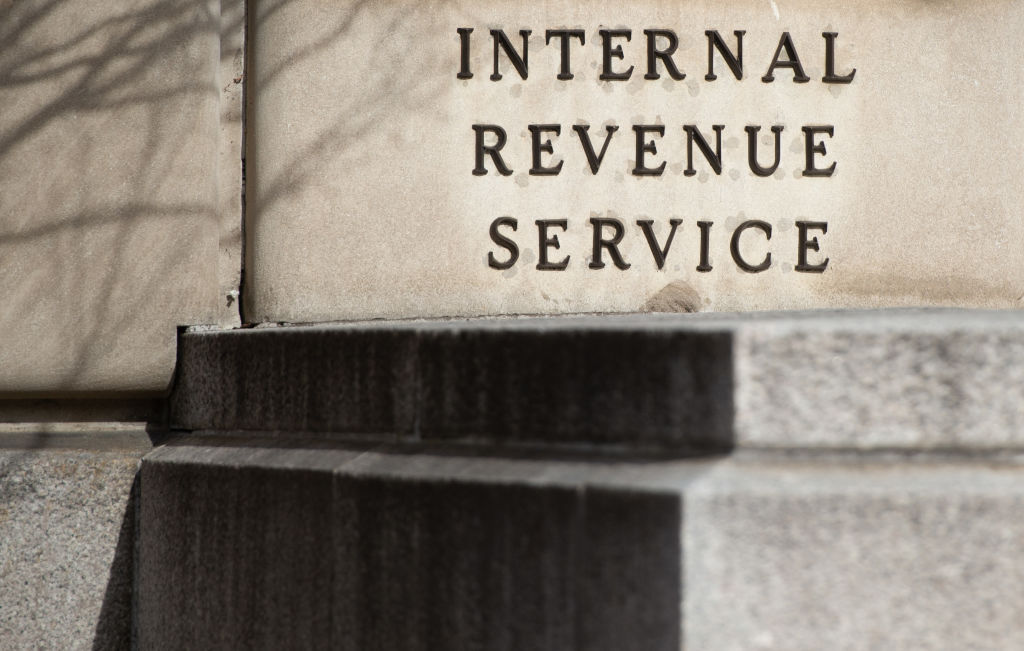Texas businessman charged with evading taxes on $2 billion in income


A free daily email with the biggest news stories of the day – and the best features from TheWeek.com
You are now subscribed
Your newsletter sign-up was successful
Federal prosecutors on Thursday charged Houston software executive Robert Brockman with multiple counts of tax evasion, money laundering, and wire fraud for allegedly hiding $2 billion in income over 20 years. Officials say the case is the largest criminal tax evasion prosecution in U.S. history, The Wall Street Journal reports. Brockman, 79, is chief executive of automation software company Reynolds & Reynolds Co., but the charges stem from his investment in a private equity fund managed by Vista Equity Partners and its founder, billionaire Robert Smith.
Smith, 57, reached a plea deal with prosecutors, admitting to willfully evading $43 million in federal taxes, agreeing to pay $139 million in fines and back taxes, and cooperating with the investigation. In return, he won't be prosecuted. Brockman is the sole investor in Vista's first private equity fund. His investment helped Smith become the wealthiest Black man in the U.S. Smith announced last year that he would pay off all student loans for the 2019 graduates of Morehouse College.
The alleged tax evasion by Brockman and Smith was "brazen, intentional, and significant," said Jim Lee, chief of criminal investigations for the Internal Revenue Service. "These allegations should disgust every American taxpayer as well, because the law applies to all of us when it comes to tax and paying our fair share."
The Week
Escape your echo chamber. Get the facts behind the news, plus analysis from multiple perspectives.

Sign up for The Week's Free Newsletters
From our morning news briefing to a weekly Good News Newsletter, get the best of The Week delivered directly to your inbox.
From our morning news briefing to a weekly Good News Newsletter, get the best of The Week delivered directly to your inbox.
Brockman pleaded not guilty to all charges and was released on a $1 million bond. Reynolds & Reynolds noted in a statement that Brockman's alleged crimes were comitted "outside of his professional responsibilities with Reynolds & Reynolds."
A free daily email with the biggest news stories of the day – and the best features from TheWeek.com
Peter has worked as a news and culture writer and editor at The Week since the site's launch in 2008. He covers politics, world affairs, religion and cultural currents. His journalism career began as a copy editor at a financial newswire and has included editorial positions at The New York Times Magazine, Facts on File, and Oregon State University.
-
 The Week Unwrapped: Do the Freemasons have too much sway in the police force?
The Week Unwrapped: Do the Freemasons have too much sway in the police force?Podcast Plus, what does the growing popularity of prediction markets mean for the future? And why are UK film and TV workers struggling?
-
 Properties of the week: pretty thatched cottages
Properties of the week: pretty thatched cottagesThe Week Recommends Featuring homes in West Sussex, Dorset and Suffolk
-
 The week’s best photos
The week’s best photosIn Pictures An explosive meal, a carnival of joy, and more
-
 TikTok secures deal to remain in US
TikTok secures deal to remain in USSpeed Read ByteDance will form a US version of the popular video-sharing platform
-
 Unemployment rate ticks up amid fall job losses
Unemployment rate ticks up amid fall job lossesSpeed Read Data released by the Commerce Department indicates ‘one of the weakest American labor markets in years’
-
 US mints final penny after 232-year run
US mints final penny after 232-year runSpeed Read Production of the one-cent coin has ended
-
 Warner Bros. explores sale amid Paramount bids
Warner Bros. explores sale amid Paramount bidsSpeed Read The media giant, home to HBO and DC Studios, has received interest from multiple buying parties
-
 Gold tops $4K per ounce, signaling financial unease
Gold tops $4K per ounce, signaling financial uneaseSpeed Read Investors are worried about President Donald Trump’s trade war
-
 Electronic Arts to go private in record $55B deal
Electronic Arts to go private in record $55B dealspeed read The video game giant is behind ‘The Sims’ and ‘Madden NFL’
-
 New York court tosses Trump's $500M fraud fine
New York court tosses Trump's $500M fraud fineSpeed Read A divided appeals court threw out a hefty penalty against President Trump for fraudulently inflating his wealth
-
 Trump said to seek government stake in Intel
Trump said to seek government stake in IntelSpeed Read The president and Intel CEO Lip-Bu Tan reportedly discussed the proposal at a recent meeting
